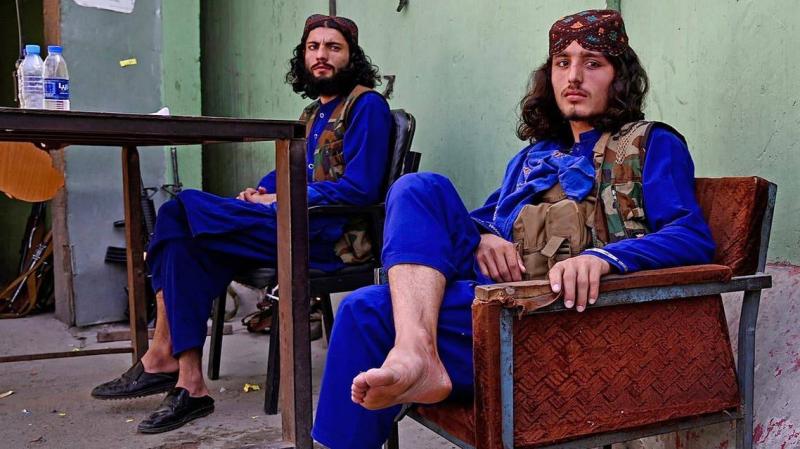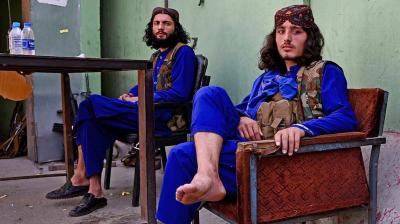Suspicious and concerning actions by Taliban members regarding human rights continue, despite the group's attempts to polish its image since it took control of Afghanistan in mid-August. Afghan activists shared videos showing a Taliban member slapping children who were kneeling on the ground, allegedly for using smartphones. The children, aged between 13 and 15, were reportedly sitting in a line in a park in Kabul.
While "Al Arabiya" could not verify the video's accuracy, it has circulated widely among Afghans on social media platforms. In recent weeks, the Taliban has enforced bans on certain activities. For instance, they issued orders to bar barbers in Helmand province from trimming beards or playing music in their shops during work hours. Most secondary schools remain closed to girls and female teachers, and some official institutions still do not employ women, adhering to Taliban directives.
Since the Taliban took control of the country, thousands of Afghans have fled, fearing the group's actions reminiscent of their rule in the 1990s, when they imposed strict conditions and laws. Many athletes, musicians, and artists—particularly women—have resorted to hiding to avoid Taliban persecution. Two decades ago, the Taliban imposed harsh laws on Afghan citizens, restricting numerous activities and nearly erasing women's presence from public life, where they were rarely seen outside their homes or in the streets. Women were also prohibited from participating in sports, pursuing education, or even traveling.
Since resuming power in August, the international community has indicated that it will not recognize the Taliban-formed government without assurances and actual practices that demonstrate respect for human rights and public freedoms, along with other conditions, including preventing Afghanistan from becoming a haven for terrorism again.




